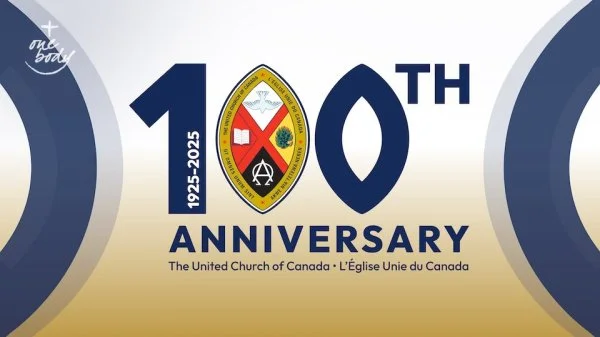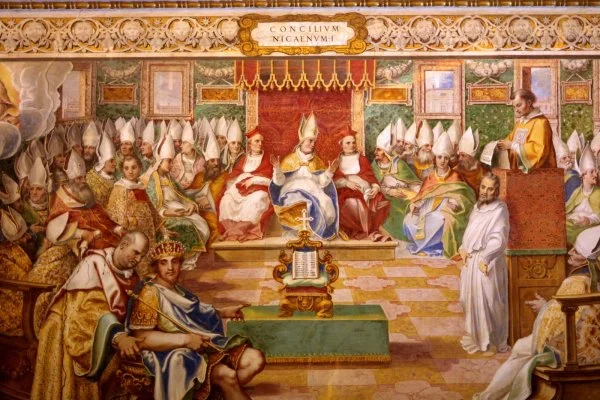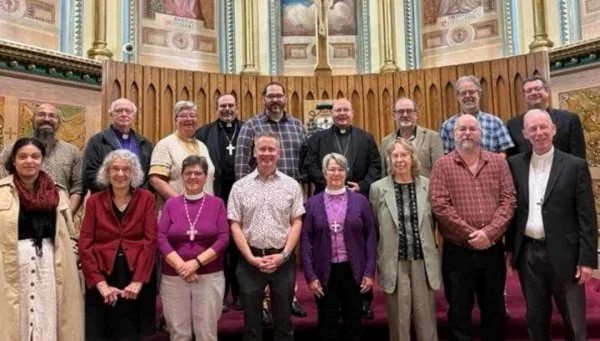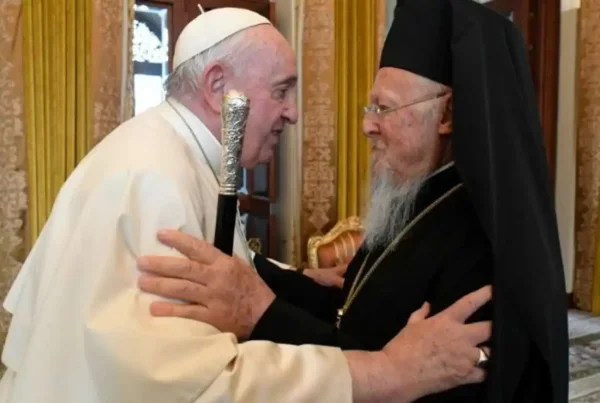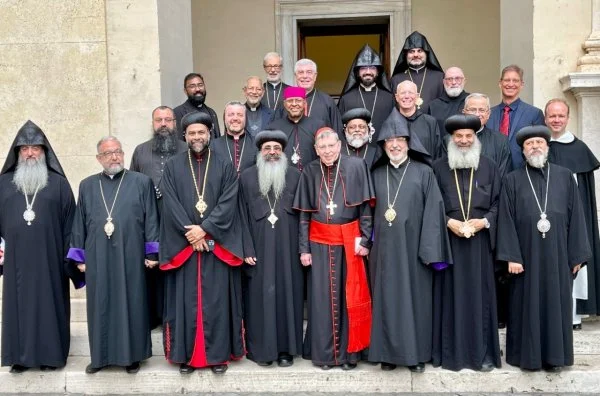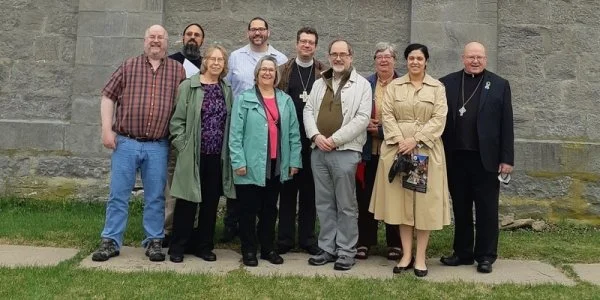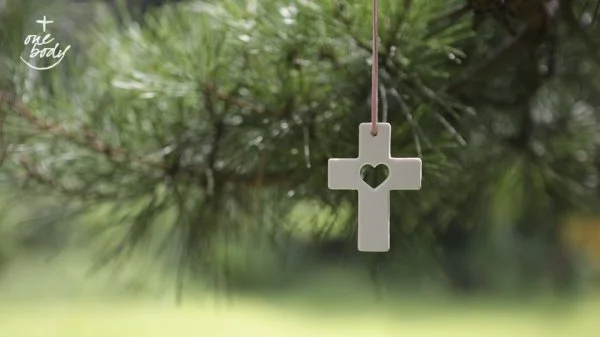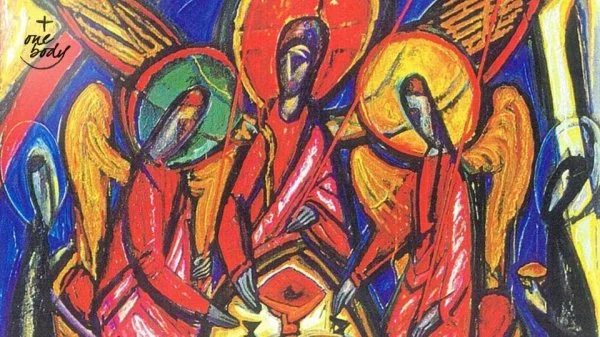- Français
- |
- Booklist
- |
- Week of Prayer
- |
- Links
- Areopagus - a forum for dialogue
- Academic journals
- Acronyms
- Bible tools
- Bibliographies
- Booksellers and publishers
- Churches
- Canadian church headquarters
- Directory of Saskatchewan churches
- Retreat centres
- Saskatchewan church and non-profit agencies
- Ecumenism.net Denominational links
- Anabaptist & Mennonite
- Anglican
- Baptist
- Evangelical
- Independent episcopal
- Lutheran
- Methodist, Wesleyan, and Holiness
- Miscellaneous
- Mormon
- Orthodox (Eastern & Oriental)
- Para-church ministries
- Pentecostal / charismatic
- Presbyterian & Reformed
- Quaker (Society of Friends)
- Roman & Eastern Catholic
- United and uniting
- Documents of Ecumenical Interest
- Ecumenical agencies
- Ecumenical Booklist
- Ecumenical Dialogues
- Glossary
- Human rights
- Inter-religious links
- Justice & peace
- Lectionaries
- Religious news services
- Resource pages
- Search Ecumenism.Net
- |
- Documents
- Ancient & Medieval texts
- Ecumenical Dialogues
- Interreligious
- Anabaptist & Mennonite
- Anglican
- Evangelical
- Lutheran
- Orthodox
- Reformed & Presbyterian
- Roman & Eastern Catholic
- United & Uniting
- Miscellaneous churches
- Canadian Council of Churches (CCC)
- Conference of European Churches (CEC)
- Interchurch Families International Network (IFIN)
- National Council of Churches in Australia (NCCA)
- Lausanne Committee for World Evangelism (LCWE)
- World Council of Churches (WCC)
- Other ecumenical documents
Church traditions
Documents from ecumenical agencies
- |
- Dialogues
- Adventist-Reformed
- African Instituted Churches-Reformed
- Anglican-Lutheran
- Anglican-Orthodox
- Anglican-Reformed
- Anglican-Roman Catholic
- Anglican-United/Uniting
- Baptist-Reformed
- Disciples of Christ-Reformed
- Disciples of Christ-Roman Catholic
- Evangelical-Roman Catholic
- Lutheran-Mennonite
- Lutheran-Mennonite-Roman Catholic
- Lutheran-Reformed
- Lutheran-Roman Catholic
- Mennonite-Reformed
- Mennonite-Roman Catholic
- Methodist-Reformed
- Methodist-Roman Catholic
- Oriental Orthodox-Reformed
- Orthodox-Reformed
- Orthodox-Roman Catholic
- Pentecostal-Reformed
- Prague Consultations
- REC-WARC Consultations
- Roman Catholic-Lutheran-Reformed
- Roman Catholic-Reformed
- Roman Catholic-United Church of Canada
- |
- Quick links
- Canadian Centre for Ecumenism
- Canadian Council of Churches
- Ecumenical Shared Ministries
- Ecumenism in Canada
- Interchurch Families International Network
- International Anglican-Roman Catholic Commission for Unity and Mission
- Kairos: Canadian Ecumenical Justice Initiatives
- North American Academy of Ecumenists
- Prairie Centre for Ecumenism
- Réseau œcuménique justice et paix
- Week of Prayer for Christian Unity
- Women's Interchurch Council of Canada
- World Council of Churches
- |
- Archives
- |
- About us
Archive for tag: dialogue
Archive pour tag : dialogue
A number of years ago, at a local dialogue meeting of Catholics and Mennonites in Edmonton, we considered together that section of the Catechism of the Catholic Church that pertains specifically to the “one-ness” of the Church (#811-822).
I remember in particular a great discussion that ensued around CCC #815. It delineates the “bonds of communion” which, for Catholics, mark and hold Christians in unity with one another within the Body of Christ. That paragraph reads:
What are these bonds of unity? Above all, charity “binds everything together in perfect harmony.” But the unity of the pilgrim Church is also assured by visible bonds of communion:
- profession of one faith received from the Apostles;
- common celebration of divine worship, especially the sacraments;
- apostolic succession through the sacrament of Holy Orders, maintaining the fraternal concord of God’s family.

 Permanent link: ecumenism.net/?p=14648
Permanent link: ecumenism.net/?p=14648
Categories: One Body, Opinion • In this article: Catholic, dialogue, Dicastery for Promoting Christian Unity, Mennonite, Mennonite World Conference

 Lien permanente : ecumenism.net/?p=14648
Lien permanente : ecumenism.net/?p=14648
Catégorie : One Body, Opinion • Dans cet article : Catholic, dialogue, Dicastery for Promoting Christian Unity, Mennonite, Mennonite World Conference
This year, 2025, marks the 100th anniversary of the founding of The United Church of Canada (UCC). It is a uniquely Canadian church, formed in part in response to the desire to minister effectively to the many small Christian communities scattered across the sparsely populated prairie provinces. The UCC has been committed to the search for Christian unity from the time of its foundation, something it has clearly expressed in its fifty year dialogue with the Canadian Roman Catholic Church.
Following an exchange of correspondence between the UCC General Council and the Canadian Conference of Catholic Bishops (CCCB) in the fall of 1974, the Roman Catholic/United Church Dialogue held its first meeting in November 1975. Appointed by the UCC’s Inter-Church and Inter-Faith Relations Committee and the CCCB’s Episcopal Commission for Ecumenism, dialogue participants are committed to improving relationships between the two churches, and to countering misinformation, stereotypes, and prejudices. It explores pastoral, theological, and ethical issues, including those that have traditionally prevented full unity. In consultation with its two sponsoring bodies, the group determines its agenda, reports periodically on the dialogue and seeks ways of communicating what it has learned from the dialogue.
… Read more » … lire la suite »

 Permanent link: ecumenism.net/?p=14643
Permanent link: ecumenism.net/?p=14643
Categories: One Body, Opinion • In this article: Catholic, CCCB, dialogue, United Church of Canada

 Lien permanente : ecumenism.net/?p=14643
Lien permanente : ecumenism.net/?p=14643
Catégorie : One Body, Opinion • Dans cet article : Catholic, CCCB, dialogue, United Church of Canada
June 10, 2025 marks 100 years since 8,000 people gathered in the Mutual Street Arena in Toronto to formally inaugurate, with declarations and worship, The United Church of Canada. Members of the United Church today will easily acknowledge that its history is an ecumenical history, and they remember and celebrate its important contributions to the ongoing search for Christian unity and interfaith cooperation. Reflecting on this history in today’s world of increasingly violent division, fear, and distrust of difference, celebrations also bring questions: what is the continuing ecumenical call to a church committed to “Deep Spirituality, Bold Discipleship, and Daring Justice?”
I offer here a review of that ecumenical history: the beginnings and subsequent life and witness of the United Church, an overview of the church’s ecumenical witness today, and some questions and challenges arising as the church enters the next phase of its life in the world.
… Read more » … lire la suite »

 Permanent link: ecumenism.net/?p=14641
Permanent link: ecumenism.net/?p=14641
Categories: One Body, Opinion • In this article: dialogue, United Church of Canada

 Lien permanente : ecumenism.net/?p=14641
Lien permanente : ecumenism.net/?p=14641
Catégorie : One Body, Opinion • Dans cet article : dialogue, United Church of Canada
The Arians believed that Jesus was a created being and not fully divine; these ideas were condemned at Nicaea in 325, but continue to resurface. The hope of the former preacher to the papal household is that this seventeenth centenary year will see a reawakening of faith in the divinity of Christ and in the trinity of God.
The year 2025 marks the seventeenth centenary of the Ecumenical Council held in the city of Nicaea (now Iznik, Turkey) in the early months of 325. The creed sanctioned by that council unites Christians of the historic Churches – Catholic, Orthodox, Lutheran, Calvinist, Anglican – and the various denominations that go under the name of “Evangelical” and “Pentecostal”. This centenary provides us with a unique opportunity – one that only at this point in history are we able to grasp – to acknowledge and celebrate together the faith that unites all believers in Christ.
It also offers us another, no less important opportunity: to take a reconnaissance flight that looks at faith in Christ in the modern and post-modern world and compares where we stand today to the faith of Nicaea. In the aftermath of a local council held in Rimini in 359, dominated by opponents of Nicaea, St Jerome wrote: “The whole world groaned and was astonished to find itself Arian.” We must ask ourselves whether, by chance, we have an even greater reason today to let out such a groan.
… Read more » … lire la suite »

 Permanent link: ecumenism.net/?p=14479
Permanent link: ecumenism.net/?p=14479
Categories: Tablet • In this article: Catholic, dialogue, Evangelical, Nicaea, Orthodox, Raniero Cantalamessa

 Lien permanente : ecumenism.net/?p=14479
Lien permanente : ecumenism.net/?p=14479
Catégorie : Tablet • Dans cet article : Catholic, dialogue, Evangelical, Nicaea, Orthodox, Raniero Cantalamessa
The years following the closure of the Second Vatican Council in 1965 witnessed an explosion of bilateral ecumenical dialogues between various churches. Among these is the International Anglican-Roman Catholic Commission for Unity and Mission (IARCCUM), which traces its origins to a consultation of Anglican and Roman Catholic bishops in May 2000. It holds a unique place which may offer hope for renewed ecumenical progress.
Pope St. John Paul II and Archbishop of Canterbury Dr. George Carey signed a Common Declaration when Carey visited Rome in December, 1996. In response to that declaration, Carey and Cardinal Edward Cassidy, President of the Pontifical Council for Promoting Christian Unity (PCPCU), invited pairs of Anglican and Catholic bishops from around the world to gather at a retreat house in Mississauga, ON. Chosen by their fellow bishops to represent their respective Anglican Province or Episcopal Conference, they met to evaluate the state of Anglican-Roman Catholic relations and to chart a course for the future.
Grounded in prayer, the consultation began with a time of retreat, a shared meditation on conversion, communion, and a renewal of baptismal promises. On alternate days, the Eucharist, Morning Prayer, and Evening Prayer were celebrated according to the tradition of each communion. Making use of a theological reflection model based on experience, the gathering was designed with a minimum of input from other presenters at the consultation. Among the goals identified by the planning committee, it was hoped that the bishops would have an experience of exercising their episcopal ministry together during the consultation and continuing after, which might encourage commitment to a more regular exercise of shared ministry locally. With this in mind, a questionnaire was forwarded to the countries of the participating bishops prior to the conference. Responses to the questionnaire provided a kind of “map” of the state of current relationships, examples of ongoing joint witness, and issues which should be addressed together.
… Read more » … lire la suite »

 Permanent link: ecumenism.net/?p=14447
Permanent link: ecumenism.net/?p=14447
Categories: One Body • In this article: Anglican, bishops, Catholic, dialogue, IARCCUM

 Lien permanente : ecumenism.net/?p=14447
Lien permanente : ecumenism.net/?p=14447
Catégorie : One Body • Dans cet article : Anglican, bishops, Catholic, dialogue, IARCCUM
A group of Catholics and evangelicals has released a one-page document that identifies areas of common ground among the two largest Christian groups in the world.
“The Gift of Being Christian Together: An Ecumenical Statement of Fidelity and Recognition” is “the fruit of a new ecumenical dialogue,” according to a news release from Glenmary Home Missioners in Cincinnati on the document.
“At the most basic level, Catholics and evangelicals share a love of Jesus Christ,” said Alexei Laushkin, founder of Kingdom Mission Society, an evangelical organization that helped spearhead the effort.
… Read more » … lire la suite »

 Permanent link: ecumenism.net/?p=14369
Permanent link: ecumenism.net/?p=14369
Categories: Dialogue, OSV News • In this article: Catholic, dialogue, Evangelicals

 Lien permanente : ecumenism.net/?p=14369
Lien permanente : ecumenism.net/?p=14369
Catégorie : Dialogue, OSV News • Dans cet article : Catholic, dialogue, Evangelicals
The Mennonite-Anglican Dialogue in Canada was created in 2017 with a mandate to build up understanding and to encourage greater partnership between these two distinct Christian communities. A first term of the dialogue was held between 2018 and 2022 under the sponsorship of Mennonite Church Canada and the Anglican Church of Canada. In 2023, the sponsoring bodies agreed to a second phase of the dialogue to commence in 2024.
The first meeting of this second iteration of Mennonite-Anglican Dialogue was held from May 31 to June 2 in Treaty 1 Territory in the city of Winnipeg. It was hosted by Mennonite Church Canada at their offices and on the campus of Canadian Mennonite University.
… Read more » … lire la suite »

 Permanent link: ecumenism.net/?p=14350
Permanent link: ecumenism.net/?p=14350
Categories: Communiqué, News • In this article: Anglican Church of Canada, dialogue, Mennonite Church Canada, receptive ecumenism

 Lien permanente : ecumenism.net/?p=14350
Lien permanente : ecumenism.net/?p=14350
Catégorie : Communiqué, News • Dans cet article : Anglican Church of Canada, dialogue, Mennonite Church Canada, receptive ecumenism
The reason why the 2024 edition of the Vatican yearbook has re-inserted “Patriarch of the West” as one of the historical titles of the pope appears to be a response to concerns expressed by Orthodox leaders and theologians.
For months after the yearbook, the Annuario Pontificio, was released, the Vatican press office said it had no explanation for the reappearance of the title, which Pope Benedict XVI had dropped in 2006.
But new documents from the Dicastery for Promoting Christian Unity place the change squarely in the middle of a broad discussion among all mainline Christian churches on the papacy and the potential role of the bishop of Rome in a more united Christian community.
Members of the dicastery proposed that “a clearer distinction be made between the different responsibilities of the Pope, especially between his ministry as head of the Catholic Church and his ministry of unity among all Christians, or more specifically between his patriarchal ministry in the Latin Church and his primatial ministry in the communion of Churches.”
… Read more » … lire la suite »

 Permanent link: ecumenism.net/?p=14322
Permanent link: ecumenism.net/?p=14322
Categories: CNS, Documents • In this article: dialogue, Dicastery for Promoting Christian Unity, papacy, petrine ministry, Ut Unum Sint

 Lien permanente : ecumenism.net/?p=14322
Lien permanente : ecumenism.net/?p=14322
Catégorie : CNS, Documents • Dans cet article : dialogue, Dicastery for Promoting Christian Unity, papacy, petrine ministry, Ut Unum Sint
Recognizing that the Christian churches continually are called to grapple with new moral issues and that reaching different conclusions can complicate the search for Christian unity, a commission of Catholic and Anglican bishops and theologians has been studying how their traditions make decisions and what they can learn from each other.
Members of the official Anglican–Roman Catholic International Commission (ARCIC) met May 11-18 in Strasbourg, France, to continue their examination of “how the Church local, regional and universal discerns right ethical teaching,” according to a statement released May 27.
“For the first time in its work, ARCIC III has chosen to include two case studies as part of its reflection — one where Catholics and Anglicans reached broadly the same teaching, and one where they did not. These case studies, on Enslavement and Contraception, illustrate the doctrinal and structural similarities and differences between the two communions and also serve to highlight unresolved questions,” the statement said.
… Read more » … lire la suite »

 Permanent link: ecumenism.net/?p=14317
Permanent link: ecumenism.net/?p=14317
Categories: CNS • In this article: ARCIC, dialogue, moral discernment

 Lien permanente : ecumenism.net/?p=14317
Lien permanente : ecumenism.net/?p=14317
Catégorie : CNS • Dans cet article : ARCIC, dialogue, moral discernment
With our recent celebration of the Easter Vigil in mind, it’s a good time to reflect on the ecumenical significance of baptism and offer a brief review of some of the dialogues that have taken place on this topic. From a Catholic perspective, the ecumenical significance of baptism is clearly affirmed in Vatican II’s Decree on Ecumenism, which states that: “all who have been justified by faith in baptism are incorporated into Christ; they therefore have a right to be called Christians, and with good reason are accepted as brothers [and sisters] by the children of the Catholic Church” (#3).
… Read more » … lire la suite »

 Permanent link: ecumenism.net/?p=14282
Permanent link: ecumenism.net/?p=14282
Categories: One Body, Opinion • In this article: baptism, Canadian Council of Churches, dialogue, Trinity, United Church of Canada, WCC Commission on Faith and Order

 Lien permanente : ecumenism.net/?p=14282
Lien permanente : ecumenism.net/?p=14282
Catégorie : One Body, Opinion • Dans cet article : baptism, Canadian Council of Churches, dialogue, Trinity, United Church of Canada, WCC Commission on Faith and Order
On January 25, at the annual ecumenical service in Rome that marks the end of the Week of Prayer for Christian Unity, Pope Francis spontaneously invited Archbishop of Canterbury Justin Welby to offer remarks after Francis’ own homily. Archbishop Justin’s reflection constituted a second homily, though it was called a “discourse” in the Vatican media. Such an invitation had only been offered to Orthodox bishops in the past, so this marked a significant sign of welcome between two leaders who have become close collaborators in a number of projects. On previous occasions, Archbishop Justin and his predecessors had been invited to offer remarks at a later portion of the liturgy, but never immediately after the homily.
… Read more » … lire la suite »

 Permanent link: ecumenism.net/?p=14086
Permanent link: ecumenism.net/?p=14086
Categories: One Body, Opinion • In this article: ARCIC, dialogue, IARCCUM, ministry, ordination, women

 Lien permanente : ecumenism.net/?p=14086
Lien permanente : ecumenism.net/?p=14086
Catégorie : One Body, Opinion • Dans cet article : ARCIC, dialogue, IARCCUM, ministry, ordination, women
The Coptic Orthodox Church halts its theological dialogue with the Roman Catholic Church because of Vatican’s publication of “Fiducia supplicans”
The Coptic Orthodox Patriarchate of Alexandria has made the momentous decision to suspend its two-decades-long doctrinal dialogue with the Roman Catholic Church after the Vatican recently approved blessings for same-sex couples, something Coptic officials have called a “heresy”.
The Holy Synod of the ancient, Egypt-based Church announced on March 7 that it had decided “to suspend the theological dialogue with the Catholic Church, re-evaluate the results that the dialogue has achieved since its beginning twenty years ago, and establish new standards and mechanisms for the dialogue to proceed.” The catalyst for the decision, however, was the Dicastery for the Doctrine of the Faith’s publication last December of Fiducia supplicans, the document on blessings for couples “in irregular situations” — including those of the same sex.
… Read more » … lire la suite »

 Permanent link: ecumenism.net/?p=14093
Permanent link: ecumenism.net/?p=14093
Categories: La Croix • In this article: Catholic, Coptic, dialogue, Fiducia Supplicans, Oriental Orthodox, same-sex blessing, Tawadros II

 Lien permanente : ecumenism.net/?p=14093
Lien permanente : ecumenism.net/?p=14093
Catégorie : La Croix • Dans cet article : Catholic, Coptic, dialogue, Fiducia Supplicans, Oriental Orthodox, same-sex blessing, Tawadros II
As Catholics and Anglicans pray and work for the day when they can celebrate the Eucharist together, they are called to support one another in situations of suffering, apologize together for times when they have sinned and work together to share the good news of God’s love, said bishops from both communities.
Pairs of Catholic and Anglican bishops from 27 nations traveled to Rome Jan. 22-25 and to Canterbury, England, Jan. 26-29 for prayer, discussion and a commissioning by Pope Francis and Anglican Archbishop Justin Welby of Canterbury.
The pilgrimage was organized by the International Anglican-Roman Catholic Commission for Unity and Mission, a body established in 2001 to promote common prayer and joint projects to demonstrate concretely how the theological agreements the churches have made also have practical implications in witnessing together to the Christian faith.
A final statement drafted by participants was posted Feb. 1 [at IARCCUM.org] and on the websites of the Anglican Communion and the Vatican Dicastery for Promoting Christian Unity.
… Read more » … lire la suite »

 Permanent link: ecumenism.net/?p=14047
Permanent link: ecumenism.net/?p=14047
Categories: CNS • In this article: Anglican, bishops, Catholic, dialogue, IARCCUM, WPCU

 Lien permanente : ecumenism.net/?p=14047
Lien permanente : ecumenism.net/?p=14047
Catégorie : CNS • Dans cet article : Anglican, bishops, Catholic, dialogue, IARCCUM, WPCU
The Anglican-Roman Catholic Dialogue in Canada (ARC) has met regularly since 1971. It works closely with the Anglican-Roman Catholic Bishops’ Dialogue (ARC-B), which was established in 1975. Supported by the Anglican Church of Canada (ACC) and the Canadian Conference of Catholic Bishops, the mandate of both Dialogues is to advance ecumenical understanding and cooperation between the churches in our country. In recent years, the Anglican contingent on ARC has also added members of the Evangelical Lutheran Church in Canada (ELCIC) as an expression of the deepening full communion relationship between the ACC and ELCIC.
… Read more » … lire la suite »

 Permanent link: ecumenism.net/?p=13985
Permanent link: ecumenism.net/?p=13985
Categories: Communiqué, Dialogue • In this article: Anglican Church of Canada, Canada, Catholic, CCCB, dialogue, Evangelical Lutheran Church in Canada

 Lien permanente : ecumenism.net/?p=13985
Lien permanente : ecumenism.net/?p=13985
Catégorie : Communiqué, Dialogue • Dans cet article : Anglican Church of Canada, Canada, Catholic, CCCB, dialogue, Evangelical Lutheran Church in Canada
On 19 September 2023, the last day of the Thirteenth Assembly of the Lutheran World Federation (LWF) in Krakow, Poland, Cardinal Kurt Koch, Prefect of the Dicastery for Promoting Christian Unity (DPCU), and Revd Dr Anne Burghardt, General Secretary of the LWF, presented a “Common Word” [English and German] during an ecumenical prayer and baptismal commemoration.
… Read more » … lire la suite »

 Permanent link: ecumenism.net/?p=13999
Permanent link: ecumenism.net/?p=13999
Categories: Documents, News • In this article: Anne Burghardt, dialogue, Dicastery for Promoting Christian Unity, document, ecumenism, Kurt Koch, Lutheran World Federation

 Lien permanente : ecumenism.net/?p=13999
Lien permanente : ecumenism.net/?p=13999
Catégorie : Documents, News • Dans cet article : Anne Burghardt, dialogue, Dicastery for Promoting Christian Unity, document, ecumenism, Kurt Koch, Lutheran World Federation
Catholic-Orthodox relations took a step forward this month with the publication of the first joint statement in seven years.
The document said Pope Francis’ hope for a synodal Church promotes “a more effective synodality,” which could eventually bring the Catholic and Orthodox Churches closer together on the issue.
… Read more » … lire la suite »

 Permanent link: ecumenism.net/?p=13719
Permanent link: ecumenism.net/?p=13719
Categories: CNA • In this article: Catholic, dialogue, Orthodox, synodality

 Lien permanente : ecumenism.net/?p=13719
Lien permanente : ecumenism.net/?p=13719
Catégorie : CNA • Dans cet article : Catholic, dialogue, Orthodox, synodality
The Joint International Commission for Theological Dialogue between the Roman Catholic Church and the Orthodox Church held its fifteenth plenary session from 1-7 June 2023 in Alexandria, Egypt, hosted by the Greek-Orthodox Patriarchate of Alexandria and All Africa.
… Read more » … lire la suite »

 Permanent link: ecumenism.net/?p=13725
Permanent link: ecumenism.net/?p=13725
Categories: Communiqué, Dialogue, News • In this article: dialogue, Dicastery for Promoting Christian Unity, Ecumenical Patriarch of Constantinople, Orthodox, primacy, synodality

 Lien permanente : ecumenism.net/?p=13725
Lien permanente : ecumenism.net/?p=13725
Catégorie : Communiqué, Dialogue, News • Dans cet article : dialogue, Dicastery for Promoting Christian Unity, Ecumenical Patriarch of Constantinople, Orthodox, primacy, synodality
At the root of Christian agreements and disagreements about Mary are matters that are at the same time biblical, doctrinal, historical, liturgical, theological, sociological, soteriological, ecclesiological, and so on. What does the Bible say or not say about Mary, and how is this to be interpreted? How much of what is professed about Mary belongs to the Tradition of the Church rather than directly found in Scripture? How much is from historical, cultural, or sentimental expressions developed within specific churches? Does Marian doctrine or devotion enhance or take away anything from the central focus on Christ? What is the relationship between God’s grace present and active in Mary’s life, and her own (and our own) human actions or belief? What is meant by the veneration of Mary (or of the saints) as distinct from worshipping God? When and by whose authority did Marian titles, feasts, and dogmas come to be assigned within the Christian Church? Are all such titles, feasts, and dogmas essential, obligatory, and/or intended to be marked with equal solemnity? How is Mary’s life and faith presented as a model for female Christian discipleship, or as exemplary for Christian life in general?
… Read more » … lire la suite »

 Permanent link: ecumenism.net/?p=13708
Permanent link: ecumenism.net/?p=13708
Categories: One Body, Opinion • In this article: Anglican, dialogue, Evangelicals, Groupe des Dombes, Mary, Methodist

 Lien permanente : ecumenism.net/?p=13708
Lien permanente : ecumenism.net/?p=13708
Catégorie : One Body, Opinion • Dans cet article : Anglican, dialogue, Evangelicals, Groupe des Dombes, Mary, Methodist
The general secretary of the World Council of Churches (WCC), Rev. Dr. Jerry Pillay, has led a delegation to Moscow to meet with leaders of the Russian Orthodox Church, including Patriarch Kirill. The 24-hour visit, which was taking place on Wednesday and Thursday, followed a similar WCC trip from May 10-13 to the Ukrainian capital Kyiv.
“Consolidation and unity in Ukrainian society, including especially among the majority Christian Orthodox believers, is an obvious necessity in the current circumstances faced by the nation and people of Ukraine” observed Rev. Pillay. “We visited Moscow to discuss engagement also by the Russian Orthodox Church in dialogue on the war and its consequences, including with regard to the deep divisions in the Orthodox family in this context,” Pillay reported, “and I am grateful for HH Patriarch Kirill’s commitment to exploring this possibility.”
… Read more » … lire la suite »

 Permanent link: ecumenism.net/?p=13685
Permanent link: ecumenism.net/?p=13685
Categories: News • In this article: dialogue, Heinrich Bedford-Strohm, peace, Russian Orthodox, Ukrainian Orthodox, WCC

 Lien permanente : ecumenism.net/?p=13685
Lien permanente : ecumenism.net/?p=13685
Catégorie : News • Dans cet article : dialogue, Heinrich Bedford-Strohm, peace, Russian Orthodox, Ukrainian Orthodox, WCC
Have you ever greeted a neighbour with a “Happy Easter,” only to learn that they are still in the season of Lent and won’t be celebrating the Feast for another couple of weeks? In areas where Christians of different denominations live closely together, especially Eastern and Western churches, the search for a common date to celebrate Christ’s resurrection has become an urgent concern. As St. Paul makes clear (1 Corinthians 15:12-14), belief in the resurrection is a fundamental aspect of the apostolic faith. By celebrating this event on different days, Christians compromise their credibility and effectiveness in bringing the Gospel to an increasingly secular world.
… Read more » … lire la suite »

 Permanent link: ecumenism.net/?p=13572
Permanent link: ecumenism.net/?p=13572
Categories: One Body, Opinion • In this article: Date of Easter, dialogue, WCC

 Lien permanente : ecumenism.net/?p=13572
Lien permanente : ecumenism.net/?p=13572
Catégorie : One Body, Opinion • Dans cet article : Date of Easter, dialogue, WCC
I was recently asked how we know if a dialogue is successful. Even in the church, there is a temptation to assess projects and ministries by worldly standards. How much did it cost? How many people attended? How many people watched the video? These practical concerns should be considered, but other questions might be more critical. Did the experience transform people? Did this deepen or strengthen relationships between people or between the churches? What were the fruits of this project? What is the Spirit saying to the churches?
… Read more » … lire la suite »

 Permanent link: ecumenism.net/?p=13641
Permanent link: ecumenism.net/?p=13641
Categories: One Body, Opinion • In this article: Canada, CCCB, dialogue

 Lien permanente : ecumenism.net/?p=13641
Lien permanente : ecumenism.net/?p=13641
Catégorie : One Body, Opinion • Dans cet article : Canada, CCCB, dialogue
Our Lord Jesus prays in His High Priestly prayer in John 17: “Holy Father, keep them in Your name, which You have given Me, that they may be one, even as We are one” (v. 17). Our Lord Jesus is praying for His disciples. He is praying for His Church. He is praying for you and me today.
Our Lord’s prayer can be understood in this way: that His Church would remain one—not that we would somehow achieve this oneness by our actions. Our Lord is praying that the oneness that we already have in Him would be preserved. That we would remain one. The Lutheran Reformers expressed this in the Augsburg Confession in saying that after coming to agreement on what we teach and confess we would live “in unity and concord in the one Christian Church” (AC Preface 4).
… Read more » … lire la suite »

 Permanent link: ecumenism.net/?p=13452
Permanent link: ecumenism.net/?p=13452
Categories: Opinion • In this article: dialogue, ecumenism, Lutheran Church–Canada

 Lien permanente : ecumenism.net/?p=13452
Lien permanente : ecumenism.net/?p=13452
Catégorie : Opinion • Dans cet article : dialogue, ecumenism, Lutheran Church–Canada
One day after his election to the papacy on April 19, 2005, Pope Benedict XVI addressed the College of Cardinals. He affirmed his commitment to the ecumenical agenda of his predecessor, Pope John Paul II, and identified his primary task as the impelling duty “to work tirelessly to rebuild the full and visible unity of all Christ’s followers.” He stated his readiness “to do everything in his power to promote the fundamental cause of ecumenism,” as well as his determination “to encourage every initiative that seems appropriate for promoting contacts and understanding with the representatives of the different Churches and Ecclesial Communities.” At the time of his death on December 31, 2022, tributes from ecumenical partners around the world testified to his fidelity to these commitments made at beginning of his papacy.
… Read more » … lire la suite »

 Permanent link: ecumenism.net/?p=13637
Permanent link: ecumenism.net/?p=13637
Categories: One Body, Opinion • In this article: Catholic, dialogue, Joseph Ratzinger, justification by faith, Lutheran, Pope Benedict XVI

 Lien permanente : ecumenism.net/?p=13637
Lien permanente : ecumenism.net/?p=13637
Catégorie : One Body, Opinion • Dans cet article : Catholic, dialogue, Joseph Ratzinger, justification by faith, Lutheran, Pope Benedict XVI
The Joint International Commission for Theological Dialogue between the Catholic Church and the Oriental Orthodox Churches has published a new document entitled “The Sacraments in the Life of the Church”.
… Read more » … lire la suite »

 Permanent link: ecumenism.net/?p=13159
Permanent link: ecumenism.net/?p=13159
Categories: News • In this article: Catholic, dialogue, Oriental Orthodox, statements

 Lien permanente : ecumenism.net/?p=13159
Lien permanente : ecumenism.net/?p=13159
Catégorie : News • Dans cet article : Catholic, dialogue, Oriental Orthodox, statements
The Joint International Commission for Theological Dialogue between the Catholic Church and the Assyrian Church of the East agreed on a new document entitled The Images of the Church in the Syriac and Latin Patristic Traditions.
… Read more » … lire la suite »

 Permanent link: ecumenism.net/?p=13161
Permanent link: ecumenism.net/?p=13161
Categories: Documents, News • In this article: Assyrian Church of the East, Catholic, church, dialogue, ecclesiology, statements

 Lien permanente : ecumenism.net/?p=13161
Lien permanente : ecumenism.net/?p=13161
Catégorie : Documents, News • Dans cet article : Assyrian Church of the East, Catholic, church, dialogue, ecclesiology, statements
In October 2022, members, consultants, and staff of the United States Conference of Catholic Bishops’ (USCCB) Committee on Ecumenical and Interreligious Affairs met with members of the Anglican Church in North America’s (ACNA) Committee on Ecumenical Affairs in Chicago. The meeting marked the second theological exchange between the committees, and mutual affirmation by both organizations was expressed towards future meetings to explore ways to draw closer together and expand the Kingdom of God.
Following a time of fellowship and prayer, papers were presented for discussion on the Roman Catholic and Anglican understanding of the Episcopacy.
… Read more » … lire la suite »

 Permanent link: ecumenism.net/?p=13267
Permanent link: ecumenism.net/?p=13267
Categories: Dialogue, News • In this article: Anglican Church in North America, Catholic, dialogue, USCCB

 Lien permanente : ecumenism.net/?p=13267
Lien permanente : ecumenism.net/?p=13267
Catégorie : Dialogue, News • Dans cet article : Anglican Church in North America, Catholic, dialogue, USCCB
The fifth meeting of Phase III of the international dialogue between the Baptist World Alliance (BWA) and the Catholic Church took place 12-16 December 2022 in Rome, hosted by the Dicastery for Promoting Christian Unity (DPCU).
… Read more » … lire la suite »

 Permanent link: ecumenism.net/?p=13163
Permanent link: ecumenism.net/?p=13163
Categories: Communiqué, News • In this article: Baptist World Alliance, dialogue, Dicastery for Promoting Christian Unity

 Lien permanente : ecumenism.net/?p=13163
Lien permanente : ecumenism.net/?p=13163
Catégorie : Communiqué, News • Dans cet article : Baptist World Alliance, dialogue, Dicastery for Promoting Christian Unity
From 25 to 28 November 2022 representatives of the Dicastery for Promoting Christian Unity and of the Office for International Ecumenical Relations of the Salvation Army met in London at the William Booth Training College, in the first of a new series of Conversations, on the theme: “Discipleship for Mission”.
… Read more » … lire la suite »

 Permanent link: ecumenism.net/?p=12903
Permanent link: ecumenism.net/?p=12903
Categories: News • In this article: dialogue, Dicastery for Promoting Christian Unity, Salvation Army

 Lien permanente : ecumenism.net/?p=12903
Lien permanente : ecumenism.net/?p=12903
Catégorie : News • Dans cet article : dialogue, Dicastery for Promoting Christian Unity, Salvation Army
World Council of Churches acting general secretary Rev. Prof. Dr Ioan Sauca delivered a lecture during the first edition of the “Bahrain Dialogue Forum: East and West for Human Coexistence” held 3-4 November.
… Read more » … lire la suite »

 Permanent link: ecumenism.net/?p=12863
Permanent link: ecumenism.net/?p=12863
Categories: WCC News • In this article: dialogue, human coexistence, interfaith, WCC

 Lien permanente : ecumenism.net/?p=12863
Lien permanente : ecumenism.net/?p=12863
Catégorie : WCC News • Dans cet article : dialogue, human coexistence, interfaith, WCC
Mercredi 5 octobre, le Pape François a reçu en audience privée les membres de la Commission mixte internationale méthodiste-catholique (MERCIC). La Commission, inaugurée en 1967 et dont les rencontres se sont succédées depuis sans interruption, se trouve actuellement à Rome à la Casa Maria Immacolata pour la première réunion plénière de son douzième cycle de dialogue. À l’audience avec le Saint-Père, les participants étaient accompagnés du Cardinal Kurt Koch, Préfet du Dicastère pour la promotion de l’unité des chrétiens.
… Read more » … lire la suite »

 Permanent link: ecumenism.net/?p=12629
Permanent link: ecumenism.net/?p=12629
Categories: News • In this article: Catholic, dialogue, Dicastery for Promoting Christian Unity, MERCIC, Methodist, World Methodist Council

 Lien permanente : ecumenism.net/?p=12629
Lien permanente : ecumenism.net/?p=12629
Catégorie : News • Dans cet article : Catholic, dialogue, Dicastery for Promoting Christian Unity, MERCIC, Methodist, World Methodist Council
Pope Francis received members of the Methodist-Roman Catholic International Commission (MERCIC) in a private audience on Wednesday 5 October. The Commission, which began work in 1967 and has met since without interruption, is currently meeting in Rome at the Casa Maria Immacolata for the first plenary meeting of its twelfth round of dialogue. The Commission was accompanied to the audience by Cardinal Kurt Koch, Prefect of the Dicastery for Promoting Christian Unity.
… Read more » … lire la suite »

 Permanent link: ecumenism.net/?p=12600
Permanent link: ecumenism.net/?p=12600
Categories: News • In this article: Catholic, dialogue, Dicastery for Promoting Christian Unity, MERCIC, Methodist, World Methodist Council

 Lien permanente : ecumenism.net/?p=12600
Lien permanente : ecumenism.net/?p=12600
Catégorie : News • Dans cet article : Catholic, dialogue, Dicastery for Promoting Christian Unity, MERCIC, Methodist, World Methodist Council
On September 16, 2022 the International Lutheran Council’s (ILC) 2022 World Conference adopted a resolution calling for continued ecumenical conversations with the Roman Catholic Church, and approving the Final Report of the conversations of the ILC and the Pontifical Council for Promoting Christian Unity (PCPCU) which was published in 2021.
… Read more » … lire la suite »

 Permanent link: ecumenism.net/?p=13359
Permanent link: ecumenism.net/?p=13359
Categories: News • In this article: dialogue, Dicastery for Promoting Christian Unity, International Lutheran Council

 Lien permanente : ecumenism.net/?p=13359
Lien permanente : ecumenism.net/?p=13359
Catégorie : News • Dans cet article : dialogue, Dicastery for Promoting Christian Unity, International Lutheran Council
The first session of the sixth phase of the International Commission for Dialogue between the Disciples of Christ and the Catholic Church took place in Melbourne, Kentucky, USA, from the 24th to 29th June 2022. The Commission consists of fourteen Catholic and Disciples members appointed by the Dicastery for Promoting Christian Unity, Vatican, and the Disciples Ecumenical Consultative Council, Indianapolis, USA. The goal of the dialogue, which started in 1977, has been understood to be full visible unity between Catholics and Disciples of Christ.
For the sixth phase, “The Ministry of the Holy Spirit” based on 2 Corinthians 3 has been chosen as the overall topic to explore the work of the Holy Spirit, especially in the life and ministry of the Church.
Prior to this session in person, the Commission held three online meetings to get to know one another, to discuss the Basic Outline of the Sixth Phase, and to help the Catholic members understand the history and polity of the Disciples of Christ.
On the first day, the Catholic co-chair, the Most Reverend David L. Ricken, Bishop of Green Bay, WI, USA, and the Disciples co-chair, Rev. Dr. Robert Welsh, Indianapolis, IN, USA, opened this session with a prayer service. On the following day, Bishop Ricken led a lectio divina on Acts 2 to deepen our spiritual understanding of the work of the Holy Spirit, and Dr. Welsh reviewed the previous five phases of the dialogue.
… Read more » … lire la suite »

 Permanent link: ecumenism.net/?p=11959
Permanent link: ecumenism.net/?p=11959
Categories: News • In this article: Catholic, dialogue, Disciples of Christ

 Lien permanente : ecumenism.net/?p=11959
Lien permanente : ecumenism.net/?p=11959
Catégorie : News • Dans cet article : Catholic, dialogue, Disciples of Christ
Archdeacon of Canterbury Dr Will Adam shares ecumenical insights and hopes ahead of the 15th Lambeth Conference.
Anglican bishops from around the globe are gearing up for a major event in the life of their communion which will shape the ministry and mission of its members over the next decade. The fifteenth Lambeth Conference takes place in Canterbury from 26 July to 8 August, bringing together over 600 bishops, alongside spouses, ecumenical observers and other invited guests.
The Lutheran World Federation (LWF) General Secretary Rev. Anne Burghardt will be taking part in that meeting, together with Prof. Dirk Lange, LWF’s Assistant General Secretary for Ecumenical Relations. Among those on hand to welcome them to the ancient city on the south-eastern tip of England will be a friend and ecumenical expert, Rev. Dr Will Adam, who was recently appointed Archdeacon of Canterbury.
Originally held at Lambeth Palace, the residence of the Archbishop of Canterbury on the banks of the river Thames in London, the Lambeth Conference has been meeting more or less once a decade since 1867 for prayer, reflection, fellowship and discussions on the challenges facing the 80-million-member global communion. It is one of the four, so-called Instruments of Unity of the Anglican Communion.
… Read more » … lire la suite »

 Permanent link: ecumenism.net/?p=11932
Permanent link: ecumenism.net/?p=11932
Categories: Lutheran World Information • In this article: ALICUM, Anglican, dialogue, Lutheran

 Lien permanente : ecumenism.net/?p=11932
Lien permanente : ecumenism.net/?p=11932
Catégorie : Lutheran World Information • Dans cet article : ALICUM, Anglican, dialogue, Lutheran
The Dicastery for Promoting Christian Unity and the World Methodist Council have announced in a communiqué their intention to begin a new round of dialogue in October of this year. The dialogue will focus on the inter-related themes of mission and unity. As the Church fulfils the Lord’s commission to take the good news of the Gospel “to the ends of the earth” (Acts 1: 8) it moves into new contexts and cultures and encounters new questions. As demonstrated by the Council of Jerusalem (Acts 15) and the Council of Nicaea, whose 1,700th anniversary will be marked in 2025, synodal processes are therefore necessary in order for the church to come to a common mind in responding to these questions.
… Read more » … lire la suite »

 Permanent link: ecumenism.net/?p=11957
Permanent link: ecumenism.net/?p=11957
Categories: Dialogue, News • In this article: Catholic, dialogue, Methodist

 Lien permanente : ecumenism.net/?p=11957
Lien permanente : ecumenism.net/?p=11957
Catégorie : Dialogue, News • Dans cet article : Catholic, dialogue, Methodist
Pope Francis said on Friday that members of the Anglican Communion are “valued travelling companions” as Catholics take part in a worldwide synodal process.
Speaking to the Anglican-Roman Catholic International Dialogue Commission (ARCIC) on May 13, the pope said he hoped that Anglicans would contribute to the two-year initiative leading to the Synod on Synodality in Rome in 2023.
He said: “As you know, the Catholic Church has inaugurated a synodal process: for this common journey to be truly such, the contribution of the Anglican Communion cannot be lacking. We look upon you as valued travelling companions.”
The 85-year-old pope noted that in July he is due to travel to South Sudan with Justin Welby, the Archbishop of Canterbury and leader of the Anglican Communion.
The pope, who has been making his public appearances in a wheelchair since May 5 due to a torn ligament in his right knee, said: “As part of this concrete journey, I wish to recommend to your prayers an important step. Archbishop Justin Welby and the Moderator of the Church of Scotland, two dear brothers, will be my travelling companions when, in a few weeks’ time, we will at last be able to travel to South Sudan.”
… Read more » … lire la suite »

 Permanent link: ecumenism.net/?p=11749
Permanent link: ecumenism.net/?p=11749
Categories: News • In this article: Anglican, ARCIC, Catholic, dialogue

 Lien permanente : ecumenism.net/?p=11749
Lien permanente : ecumenism.net/?p=11749
Catégorie : News • Dans cet article : Anglican, ARCIC, Catholic, dialogue
The Anglican-Roman Catholic Dialogue of Canada (ARC Canada) has been meeting regularly for 50 years, with a mandate to serve the cause of visible Christianity unity and common witness between the Anglican Church of Canada (ACC) and the Roman Catholic Church in Canada. Having continued the Dialogue online from 2020-2021, members rejoiced to be able to convene in person on May 2-5 at the Manoir D’Youville in Châteauguay, QC.
These days were the source of a renewed beginning in several ways: ARC Canada welcomed a few new members into its ranks, continuing a long tradition of gifted and dedicated ecumenical leaders who have contributed to its work over the decades. A new proposed terms of reference was reviewed that would, among other things, expand the participation of representatives from the Evangelical Lutheran Church in Canada (ELCIC) from a role as observers to full membership, as full communion partners within the ACC delegation. There was also a chance to engage with recent discussions of synodality in the Roman Catholic Church, and to review aspects of some of the latest ecumenical study on the subject of Anglican ordinations.
… Read more » … lire la suite »

 Permanent link: ecumenism.net/?p=11274
Permanent link: ecumenism.net/?p=11274
Categories: Communiqué, News • In this article: Anglican Church of Canada, Catholic, CCCB, dialogue

 Lien permanente : ecumenism.net/?p=11274
Lien permanente : ecumenism.net/?p=11274
Catégorie : Communiqué, News • Dans cet article : Anglican Church of Canada, Catholic, CCCB, dialogue
The Lutheran World Federation (LWF) and the Pontifical Council for Promoting Christian Unity (PCPCU) have issued a joint press release announcing the online publication of the report of the Fifth Phase of the Lutheran-Roman Catholic Commission on Unity. The report is entitled Baptism and Growth in Communion. The new document, which has been in preparation for the past seven years, includes important impulses for ongoing theological and ecclesiological discussion and makes “a significant step in proposing a differentiating consensus on baptism.”
The report seeks to find a language for the ecclesial dimensions of growth in communion. It concludes with six commitments setting out a road map for the ongoing dialogue and for the growing cooperation at all levels between Lutherans and Catholics. It highlights particular events over recent years that have contributed to the journey ‘from conflict to communion’, notably the joint commemoration of the 500th anniversary of the Reformation in Lund, Sweden, the Declaration of Intent endorsing fuller collaboration between the LWF’s World Service arm and the Caritas Internationalis network, as well as local initiatives such as the visit of Pope Francis to the Lutheran parish in Rome in 2015.
… Read more » … lire la suite »

 Permanent link: ecumenism.net/?p=11278
Permanent link: ecumenism.net/?p=11278
Categories: Lutheran World Information • In this article: baptism, dialogue, Dicastery for Promoting Christian Unity, Dirk Lange, Lutheran World Federation

 Lien permanente : ecumenism.net/?p=11278
Lien permanente : ecumenism.net/?p=11278
Catégorie : Lutheran World Information • Dans cet article : baptism, dialogue, Dicastery for Promoting Christian Unity, Dirk Lange, Lutheran World Federation
In more than one of our One Body articles, my fellow bloggers and I have emphasized the importance of deep, prayerful, heartfelt listening as essential to ecumenical ministry and engagement.
Such listening orients us to the voices of sisters and brothers from other churches and ecclesial communities; it invites us to consider the real (not our perceived or imagined) situation of their lives and calls us to be attentive to the ways in which the Lord may be speaking and working through them, for our sake (and theirs), and for the sake of the world.
… Read more » … lire la suite »

 Permanent link: ecumenism.net/?p=13617
Permanent link: ecumenism.net/?p=13617
Categories: One Body, Opinion • In this article: dialogue, listening, love, truth

 Lien permanente : ecumenism.net/?p=13617
Lien permanente : ecumenism.net/?p=13617
Catégorie : One Body, Opinion • Dans cet article : dialogue, listening, love, truth
A recent blog by Nick Jesson identifies “six signs of an ecumenical springtime” as a cause for renewed hope in the search for Christian unity. Not mentioned by Nick but perhaps a seventh sign of an ecumenical springtime is a growing appreciation for Saint John Paul II’s reference to dialogue as an ecumenical gift exchange. Pope Francis offers clear encouragement: “If we really believe in the abundantly free working of Holy Spirit, we can learn so much from one another!” (Evangelii Gaudium 246). With this in mind, the Catholic Ecumenical Officers of Western Canada saw Pope Francis’ invitation to the whole church, Catholic and ecumenical, to reflect together on synodality as an invitation to host an ecumenical panel on the topic.
… Read more » … lire la suite »

 Permanent link: ecumenism.net/?p=13615
Permanent link: ecumenism.net/?p=13615
Categories: One Body, Opinion • In this article: dialogue, synodality

 Lien permanente : ecumenism.net/?p=13615
Lien permanente : ecumenism.net/?p=13615
Catégorie : One Body, Opinion • Dans cet article : dialogue, synodality
The final report on conversations between the Pontifical Council for Promoting Christian Unity (PCPCU) and the International Lutheran Council (ILC) has now been released.
The five-year informal dialogue began in 2014 when a working group was organized by the PCPCU and the ILC. In this final report, the results of the dialogue are presented to Cardinal Kurt Koch, President of the PCPCU and Bishop Hans-Jörg Voigt, Chairman of the ILC.
… Read more » … lire la suite »

 Permanent link: ecumenism.net/?p=13355
Permanent link: ecumenism.net/?p=13355
Categories: Communiqué, News • In this article: dialogue, Dicastery for Promoting Christian Unity, International Lutheran Council

 Lien permanente : ecumenism.net/?p=13355
Lien permanente : ecumenism.net/?p=13355
Catégorie : Communiqué, News • Dans cet article : dialogue, Dicastery for Promoting Christian Unity, International Lutheran Council
In a joint letter of 28 October 2021, Cardinal Kurt Koch, President of the Pontifical Council for Promoting Christian Unity, and Cardinal Mario Grech, General Secretary of the Synod of Bishops, addressed the Bishops responsible for ecumenism in their Episcopal Conferences and Synods of the Oriental Catholic Churches.
In the letter, the two Cardinals offer practical suggestions aimed at implementing the ecumenical dimension of the synodal process in Dioceses, Episcopal Conferences, and Synods.
… Read more » … lire la suite »

 Permanent link: ecumenism.net/?p=10916
Permanent link: ecumenism.net/?p=10916
Categories: Documents • In this article: dialogue, Dicastery for Promoting Christian Unity, synodality

 Lien permanente : ecumenism.net/?p=10916
Lien permanente : ecumenism.net/?p=10916
Catégorie : Documents • Dans cet article : dialogue, Dicastery for Promoting Christian Unity, synodality
Dans une lettre conjointe datée du 28 octobre 2021, le Cardinal Kurt Koch, Président du Conseil pontifical pour la promotion de l’unité des chrétiens, et le Cardinal Mario Grech, Secrétaire général du Synode des évêques, se sont adressés aux évêques responsables de l’œcuménisme des Conférences épiscopales et des Synodes des Églises orientales catholiques.
Par cette lettre, les deux cardinaux entendent offrir quelques suggestions pratiques pour assurer la dimension œcuménique du processus synodal dans les diocèses et les Conférences épiscopales et les Synodes des Églises orientales catholiques.
… Read more » … lire la suite »

 Permanent link: ecumenism.net/?p=10914
Permanent link: ecumenism.net/?p=10914
Categories: Documents • In this article: dialogue, Dicastery for Promoting Christian Unity, synodality

 Lien permanente : ecumenism.net/?p=10914
Lien permanente : ecumenism.net/?p=10914
Catégorie : Documents • Dans cet article : dialogue, Dicastery for Promoting Christian Unity, synodality
On November 16, 2021, the Canadian Anglican–Roman Catholic Dialogue (ARC–Canada) marks its 50th anniversary. In an increasingly divided world where relationships are more often defined by conflict than cooperation, this is indeed an occasion to celebrate! An ongoing dialogue where words are used not to dominate or control but to seek understanding is a critical counter-cultural witness in today’s world. In addition to celebration, a 50th anniversary is an invitation to reflect on the past and to consider what may be learned for the future.
… Read more » … lire la suite »

 Permanent link: ecumenism.net/?p=13607
Permanent link: ecumenism.net/?p=13607
Categories: One Body, Opinion • In this article: Anglican, Canada, Catholic, dialogue

 Lien permanente : ecumenism.net/?p=13607
Lien permanente : ecumenism.net/?p=13607
Catégorie : One Body, Opinion • Dans cet article : Anglican, Canada, Catholic, dialogue
As any long-standing married couple will tell you, living relationships are changing relationships. So after some 55 years of bilateral dialogue, it’s not surprising to see that the Anglican–Roman Catholic international dialogue (ARCIC) has adopted a new approach. Where the first two phases of the dialogue, ARCIC I and II, sought to identify points of agreement, ARCIC III has focused on mutual support and possibilities for learning from one another through use of a methodology called receptive ecumenism. Its first agreed statement, Walking Together on the Way: Learning to be the Church – Local, Regional, Universal (WTW), was published in 2017.
… Read more » … lire la suite »

 Permanent link: ecumenism.net/?p=13603
Permanent link: ecumenism.net/?p=13603
Categories: One Body, Opinion • In this article: Anglican, Catholic, dialogue, receptive ecumenism

 Lien permanente : ecumenism.net/?p=13603
Lien permanente : ecumenism.net/?p=13603
Catégorie : One Body, Opinion • Dans cet article : Anglican, Catholic, dialogue, receptive ecumenism
Introduction In some ways, dialogue, which is essentially talking, seems a very simple thing to do. Yet, we all know there are various ways of talking. There are words that hurt and words that heal. The Epistle of James (3:1-12) clearly names the challenge. The tongue, he says, is “like a fire” and no one
… Read more » … lire la suite »

 Permanent link: ecumenism.net/?p=13585
Permanent link: ecumenism.net/?p=13585
Categories: One Body, Opinion • In this article: conversion, dialogue, ecumenism

 Lien permanente : ecumenism.net/?p=13585
Lien permanente : ecumenism.net/?p=13585
Catégorie : One Body, Opinion • Dans cet article : conversion, dialogue, ecumenism
The final report on the Lutheran-Mennonite-Roman Catholic Trilateral Conversation has been published. The report summarizes five years of theological consultations between the three communions on the understanding and practice of baptism in light of contemporary pastoral and missional challenges facing all three Christian communities.
“The report shows that today these three churches agree that baptism is for discipleship,” says Mennonite delegation member Larry Miller. “It raises the question for each of these churches: are there ways of acknowledging our different practices of baptism that grow the unity for which Jesus prayed?”
Representatives of the Catholic Church (Pontifical Council for Promoting Christian Unity), Lutheran World Federation (LWF), and Mennonite World Conference (MWC) met from 2012–2017 to discuss understanding and practice of baptism.
… Read more » … lire la suite »

 Permanent link: ecumenism.net/?p=10804
Permanent link: ecumenism.net/?p=10804
Categories: Dialogue, News • In this article: baptism, Catholic, dialogue, Dicastery for Promoting Christian Unity, Lutheran World Federation, Mennonite World Conference

 Lien permanente : ecumenism.net/?p=10804
Lien permanente : ecumenism.net/?p=10804
Catégorie : Dialogue, News • Dans cet article : baptism, Catholic, dialogue, Dicastery for Promoting Christian Unity, Lutheran World Federation, Mennonite World Conference
Meeting at First Presbyterian Church in San Diego Feb. 17-19, representatives of the Episcopal-Presbyterian Bilateral Dialogue met and considered how the two ecclesial traditions could partner with each other considering the context of the 21st-century church.
… Read more » … lire la suite »

 Permanent link: ecumenism.net/?p=13270
Permanent link: ecumenism.net/?p=13270
Categories: PCUSA News • In this article: dialogue, Episcopal Church, Presbyterian Church USA

 Lien permanente : ecumenism.net/?p=13270
Lien permanente : ecumenism.net/?p=13270
Catégorie : PCUSA News • Dans cet article : dialogue, Episcopal Church, Presbyterian Church USA
For the past year, a group of Christians and Muslims has been meeting for monthly conversations about faith.
“Islam and Christianity are two world religions that share a common theological root to Abrahamic tradition,” says group member Carol Pek, a Roman Catholic. “These two religions also share complex histories of conflict and coexistence. While the groundwork to build understanding between Christians and Muslims has been laid down by Christian and Muslim leaders, the idea is still not fully articulated in many local contexts.”
This reality led retired Catholic priest, Fr. Bernard de Margerie, and Fachrizal Halim, a Sunni Muslim who teaches Islamic Studies at St. Thomas More College, to get together a year ago to discuss the possibility of launching a Christian/Muslim conversation group.
Says Halim, “There is a genuine interest on the part of Muslims to know about Christianity and how it is defined by Christians, rather than perpetuating our own Muslim understanding of Christianity.”
… Read more » … lire la suite »

 Permanent link: ecumenism.net/?p=14096
Permanent link: ecumenism.net/?p=14096
Categories: News • In this article: Christian, dialogue, interfaith, Islam, Muslim, Saskatoon

 Lien permanente : ecumenism.net/?p=14096
Lien permanente : ecumenism.net/?p=14096
Catégorie : News • Dans cet article : Christian, dialogue, interfaith, Islam, Muslim, Saskatoon
The Anglican-Roman Catholic Bishops’ Dialogue of Canada (ARC-B) held its most recent meeting in the Toronto area from November 27-29, 2019. The annual meeting facilitates opportunities for the Anglican and Roman Catholic Bishops to share, learn, and discuss about their respective pastoral activities, update one another on the news from our churches, and further the aims of Christian unity in Canada. The Bishops specifically discussed issues relating to ecumenism, freedom of religion and conscience in Canadian society, interfaith partnerships, and various challenges and opportunities in chaplaincy ministry in military, corrections, and medical contexts. The ARC-B members were also joined for part of the meeting by the Roman Catholic and Anglican co-chairs of the Anglican-Roman Catholic theological dialogue of Canada (ARC) to discuss ARC’s current focus on the operations of synodical consultation and decision making in the two traditions. For several years now, both ARC-B and ARC have worked closely with one another, mutually enriching one another’s work and reflections.
… Read more » … lire la suite »

 Permanent link: ecumenism.net/?p=10728
Permanent link: ecumenism.net/?p=10728
Categories: Anglican Journal • In this article: Anglican Church of Canada, bishops, CCCB, dialogue

 Lien permanente : ecumenism.net/?p=10728
Lien permanente : ecumenism.net/?p=10728
Catégorie : Anglican Journal • Dans cet article : Anglican Church of Canada, bishops, CCCB, dialogue




